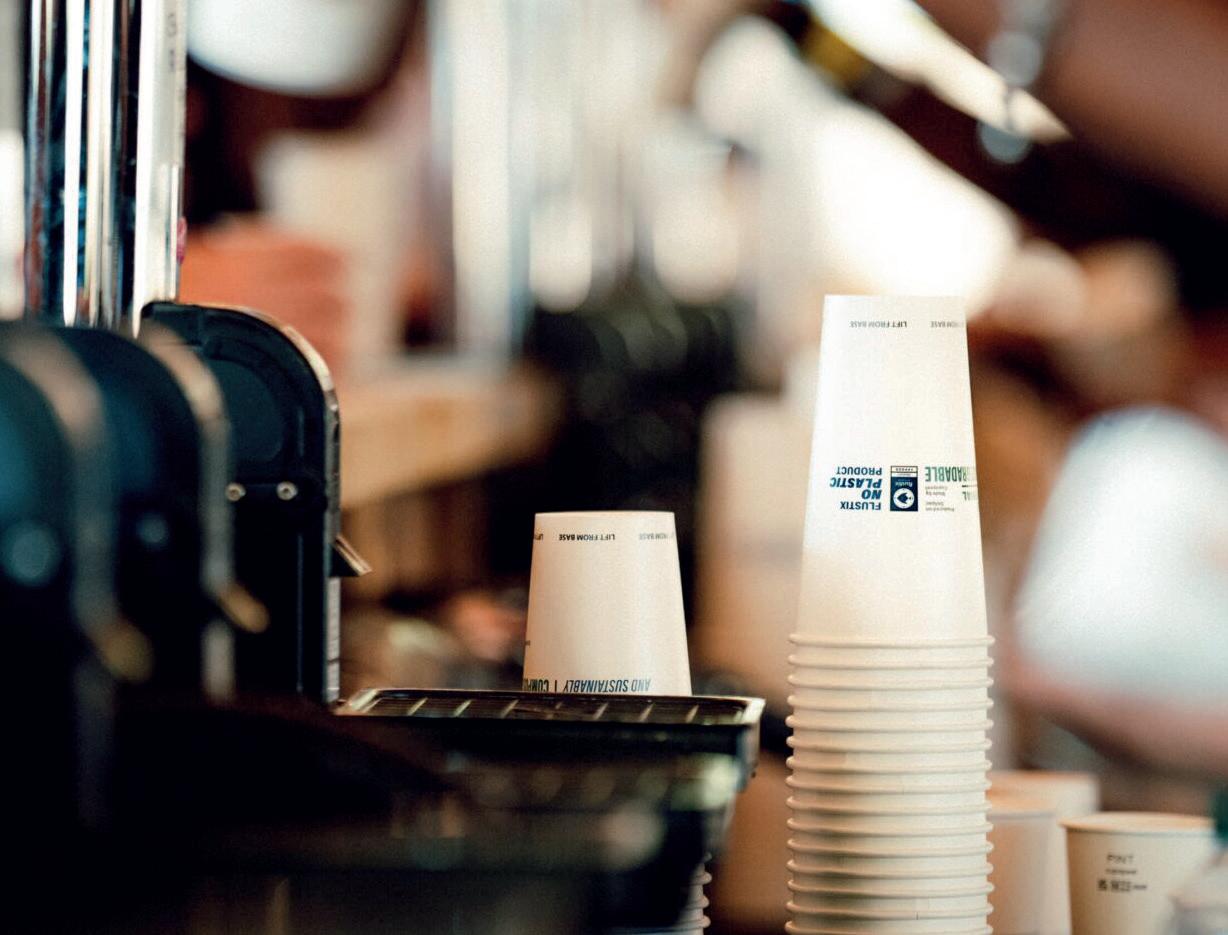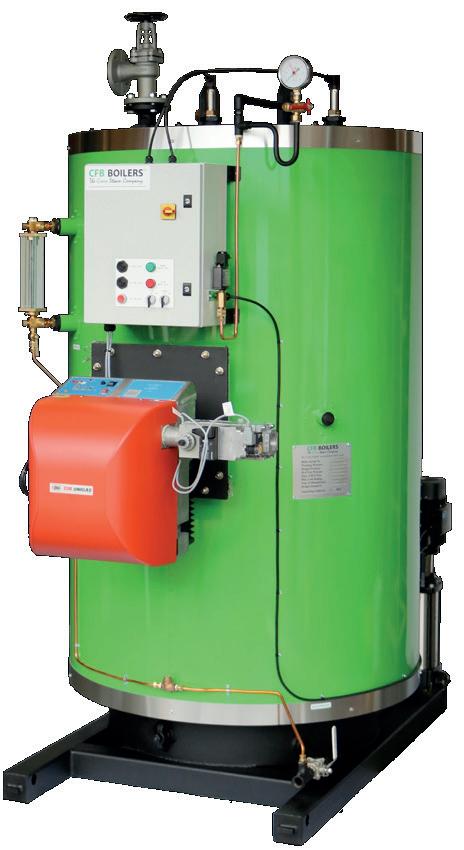
5 minute read
Business profile: Five Points Brewing Co
You recently worked with SIBA on a beer to celebrate 20 years of Small Breweries’ Relief. How did that come about?
“Barry [Watts, SIBA’s Head of Public Affairs & Policy] came to us with this idea of celebrating Small Breweries' Relief (SBR) with a special beer and we took it from there. Initially, we started out discussing doing it on our pilot kit, which brews about 750 litres, and then we ended up doing a full batch of it, which is 3,500 litres. It was actually a really fun project. And it was good to highlight all of the great things that SBR has done. The House of Commons Strangers’ Bar took six firkins, and we went in with Barry and met our local MP there and had a bit of a photo op as well. Barry also took me and some of the other brewers who were involved in initially setting up SBR to one of the debates in the House of Commons as well after the brew day, which was an amazing experience.”
What is your view on the current review of SBR?
“If it comes in in August, as is currently planned, it's going to save us something like £70,000 at the back end of this year. So, assuming it does come in in August, that will be the saving compared to what we're currently looking at paying, which is significant. And then obviously, if you annualize that, from 2024 onwards, that's more like £130,000 or something like that. It really could have a massive impact, particularly when there are so many inflationary pressures, it is one of the few things that is actually going to come in for us.”
What do you see as the current threats to the UK’s independent craft beer sector?

“The inflationary pressures and the knock-on effects to the cost of living and people's disposable income. I mean, our malt prices went up by 36% from last year to this year. Hopefully, things like that are going to start plateauing or coming down, because there isn't much further they can go before we can't absorb any more extra costs, basically. We are a hugely draught-led brewery, small pack is a very small part of what we do, so if the pubs are quiet, we are quiet. So if people's habits change, and going to the pub is more of a treat, so they might go once a week, as opposed to a few evenings a week, that's really going to have a big impact on us.”
What do you think the independent beer sector can do about the continued decline of cask?
“It's a massive concern. Cask beer is something that is really important to us, it’s something that we champion, and something that we take pride in. It's what we can do about it. I think the last few years, the up and down nature, that opening and closing of pubs, the different levels of trade, really haven't helped cask beer in particular, because of its short shelf life and turnaround time on the bar. I've been into lots of places that used to sell cask and used to be known for selling it, and they don't really have any on any more because they just don't want to waste the beer. I think if we could return to regular, predictable trade that would help massively. But then the other side of it is about education - both for pubs and people who have cellars, but also for the general public as well. There's a lot of people who still don't really understand what cask is about, and what makes it special. And it's something that we've tried to do in the past, both sides of that education piece. We used to run, and we hopefully will again, cellar training courses where we invite our key customers down and show them how we want our beer to be looked after in the cellar. Obviously, that translates to all cask beer, really. So I think it's just about championing it. And helping to make people aware of what they're actually drinking. It's a real challenge. I think there's also this capped price point for cask, which is always lower than the keg equivalent, for whatever historical reasons. We've certainly been bringing our cask wholesale prices up to match the keg prices to reflect the fact that it is as valuable, if not more valuable, as a product. I think sometimes that low price may put people off and people think of cask as a cheaper product. I don't think that necessarily helps.”
Continued on page 33





How do you support the community around you?
“We've done fundraising in various different ways. We've done brews on the pilot kit, where the proceeds sold at the taproom then go on to a specific charity We raise money on the webstore where £1 from every order goes to a specific charity. There's a group of people every year that run the Hackney half marathon, and they’ve done it for a few different charities. We’ve done all kinds of things. We have a scheme at the moment called ‘a tin for a tin’, which is a food bank offer, so you can bring in a can of baked beans or a can of soup and get a free beer for it. We've done similar things with a clothing drive - so bring in an item of warm clothing and you get a free beer. It’s just about leveraging our position in the community to hopefully fundraise, or collect items for local food banks or for night shelters and that sort of thing.”
You were the first UK brewery to be accredited as a Living Wage Employer, how important was that for your business?

“It was something we had in mind from the outset and something that we always wanted to do. And it’s something that we've maintained also across our retail operation as well. So it's not just production, but it's barstaff in the taproom and the Pembury Tavern. I think it's been amazing, it's been a real asset, and it's been a real draw for people to come and work at the brewery. And these days, loads of breweries are Living Wage accredited, which is great. That's such an amazing thing for the industry. And it's been a real positive for us. Certainly, at the more entry level positions, that is definitely a draw, and a reason for staying and sticking around.”
There's a couple of pieces of advice that really jump out at me. One is that you can learn something from every brewery you visit, no matter how big or how small they are, you just need to pay attention to how they do things in their processes.
What is the best piece of advice anyone has ever given you about brewing?
“There's a couple of pieces of advice that really jump out at me. One is that you can learn something from every brewery you visit, no matter how big or how small they are, you just need to pay attention to how they do things in their processes. And I 100% agree with that. At every brewery I've visited, I've seen something and thought ‘ah, that is such a great way of doing that!’. Breweries are such individual places that all have their own set of challenges and it's always amazing to see how other people approach them. Then the other one, from setting up and running a brewery, is that it's not enough to just be great at brewing beer or just be really good at business, you have to have both to make a sustainable long term career and business out of it.”
Who do you most admire in the craft beer sector and why?
“It's a bit of a cop out, but I struggled to single out only one or two breweries. There are so many breweries out there doing good things. And I think that's what I came back to is that I think the sector in general is amazing, and breweries do so much good for their local communities, the craft brewing sector is so progressive these days, is great for diversity and equality, and things like the apprenticeship scheme, and championing sustainability and corporate responsibility. I think the collaborative nature of the craft beer sector is incredible, and should be lauded.”











